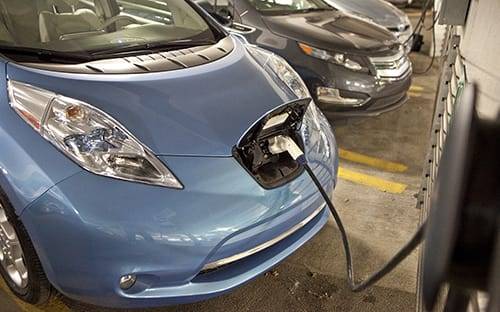Study: Most Clueless About Electric Vehicle Subsidies


Similar to the old “if-a-tree-falls-in-the-woods” question, if government incentives to encourage the purchase of plug-in vehicles are offered, but no one knows about them, do they make a difference? A research team at Indiana University conducted a survey that shows not only are consumers unaware of available subsidies, rebates and other benefits — financial and otherwise — to owning a plug-in hybrid or electric vehicle, that disconnect could be keeping sales of the zero-emissions electric vehicles from reaching White House goals.
The survey of more than 2,000 drivers in 21 of the largest U.S. cities showed that 95 percent of respondents didn’t know about state and local subsidies, rebates and other incentives available for battery-electric vehicles such as the Nissan Leaf and plug-in hybrids such as the Chevrolet Volt. Three-quarters were uninformed about the savings in fuel and maintenance costs of plug-in electric vehicles; a majority also lacked info about purchase price and driving ranges. As a result, consumers will not shop for plug-in electric vehicles when it comes time to buy a new car, researchers stated.
“If car buyers have false perceptions about the advantages of PEV ownership, they’re also unlikely to pay attention to communications about the incentives, further complicating the challenge for governments and industry,” according to the report.
Researchers noted that President Barack Obama’s previously stated (though later softened) objective of having a million plug-in vehicles on U.S. roads by 2015 is only a fraction of the way there. “That’s despite federal consumer tax credits of as much as $7,500, subsidized installation of recharging stations, and numerous state and local financial incentives, along with favored access to high-occupancy vehicle lanes and city parking,” the report stated.
The federal tax subsidy for plug-in hybrid and plug-in electric vehicles phases out at the start of the second calendar quarter after the manufacturer produces 200,000 eligible vehicles as counted from Jan. 1, 2010; the IRS announces when a manufacturer exceeds that production figure, then announces the phase-out schedule. You can find a list of eligible plug-in hybrids and the amount of the available federal subsidy here, and a list of electric vehicles and the corresponding subsidy here.
In addition, individual state incentives can make plug-ins even more affordable. For example, the 2014 Chevrolet Spark EV starts at $27,495, including an $810 destination charge; applying both the full federal subsidy and California’s $2,500 incentive effectively reduces the purchase price to less than $17,500. Illinois offers a state rebate of as much as $4,000.
Related
2014 Chevrolet Spark EV Starts Under $20K After Federal Tax Credit
Infographic: Alternative Fuels by the Numbers
More Hybrids/Alternative Fuels News on Cars.com

Former Assistant Managing Editor-News Matt Schmitz is a veteran Chicago journalist indulging his curiosity for all things auto while helping to inform car shoppers.
Featured stories




